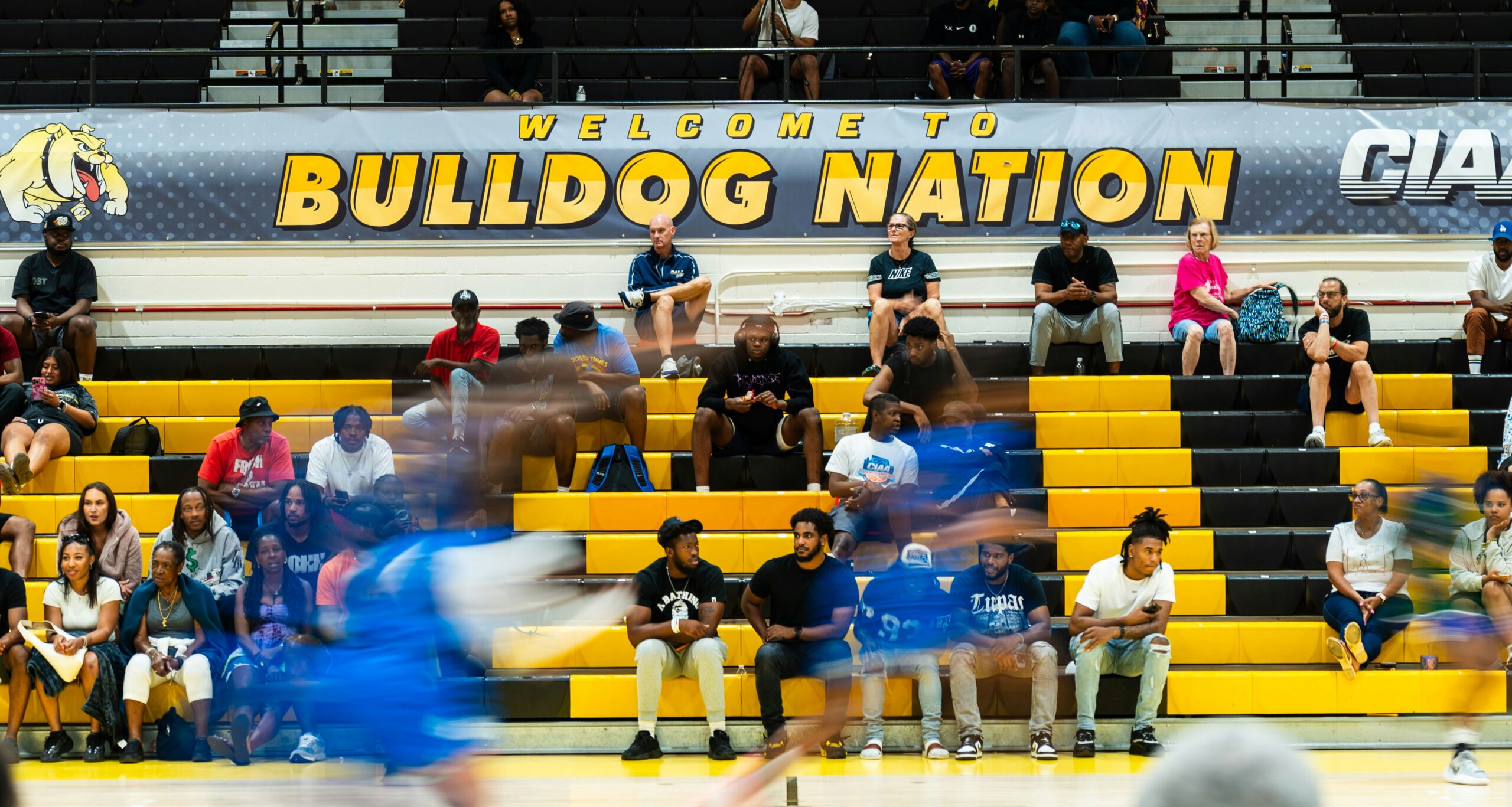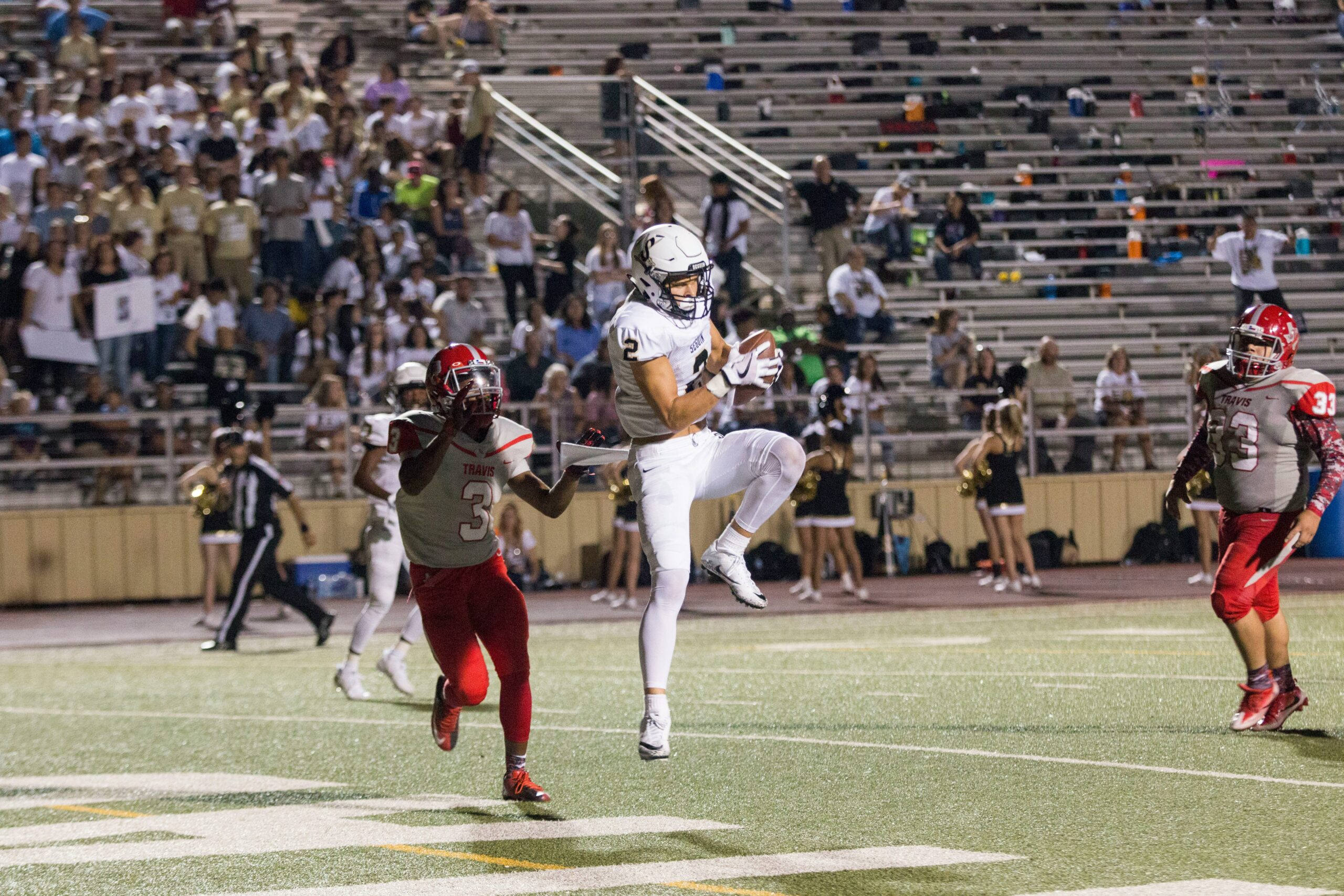Introduction to UConn’s Recent Performance
In the realm of college basketball, the University of Connecticut (UConn) has always held a prominent position, especially when ranked as the No. 2 team in the national standings. This status sets high expectations for the team, particularly during critical tournaments like the Maui Invitational. The recent performances of UConn during this prestigious event, however, have raised eyebrows among fans and analysts alike. With aspirations to solidify their championship credentials, the stakes were significantly high for the Huskies as they faced formidable opponents in Colorado and Memphis.
The Maui Invitational serves as a litmus test for top-tier programs, providing a platform to gauge performance against other elite teams. For UConn, their initial promise appeared to diminish as they confronted multiple challenges in their matchups. These games not only tested their skills but also exposed some underlying weaknesses that might have otherwise gone unnoticed during the regular season. Each contest was essential for UConn, shaping their trajectory as they navigated through the competitive landscape of college basketball.
More informationTop Stories: Ryan Day and the Ohio State vs. Michigan FalloutMoreover, the outcomes of the games against Colorado and Memphis carry implications beyond immediate victories or defeats. These contests are significant in forming the team’s identity, affecting the morale and cohesion of the roster. As we delve deeper into the analysis of these losses, it becomes apparent that understanding the factors contributing to UConn’s performance is crucial. Fans and analysts are eager to dissect not only the game statistics but also the strategic decisions made by the coaching staff. The repercussions of these contests will undoubtedly influence UConn’s strategy moving forward and their overall aspirations for the season.
UConn vs. Colorado: Game Recap
The recent encounter between UConn and Colorado proved to be a thrilling, albeit disappointing, game for UConn fans, culminating in a narrow defeat by a score of 73-72. From the onset, both teams showcased their strengths, but it was the pivotal moments in the closing stages that swung the outcome in favor of Colorado.
UConn began the match with high energy, demonstrating solid teamwork and crisp ball movement. The first half saw the team building an early lead, driven by standout performances from key players. However, Colorado’s defense tightened as the game progressed, forcing UConn to adapt to their tactics. The shifting momentum became evident as Colorado capitalized on several turnovers, narrowing UConn’s lead and building their confidence on the court.
More informationAaron Rodgers and New York Jets Part Ways: A Critical ExaminationAs the game moved into the latter half, several critical decisions by UConn’s coaching staff came under scrutiny. Notably, a timeout called during a key possession disrupted the team’s rhythm. With just a minute left on the clock, UConn found themselves in a precarious situation, having to depend on defensive stops and quick scoring plays. UConn’s shooting struggles in the final minutes were exacerbated by Colorado’s robust defense, which severely limited their scoring opportunities.
Furthermore, individual player performances played a significant role in this nail-biting finish. While UConn’s standout guard maintained aggressive play, his efforts fell short in the final seconds as he missed crucial free throws that could have altered the game’s outcome. Ultimately, despite UConn’s valiant effort, including a strong push in the final moments, the game concluded with Colorado edging out UConn in a gut-wrenching finish that has left fans grappling with the impact of this loss on the overall season. As the team analyzes this defeat, it remains clear that strategic adjustments will be essential moving forward.
Controversial Calls and Coaching Reactions
The recent Maui Invitational witnessed several pivotal moments that sparked controversy, particularly regarding the officiating decisions that significantly influenced UConn’s performance and subsequent losses. One of the most contentious calls occurred late in a crucial match, a decision that led UConn’s head coach, Dan Hurley, to vehemently express his frustration, labeling the call as ‘a joke.’ This incident not only showcased the potential impact of officiating on the game but also highlighted the emotional strain placed on players and coaching staff alike.
More informationHornets vs. Pistons: A Clash of Struggling FranchisesThe sequence of events began as the game approached its final minutes when a critical foul was assessed against UConn, a decision that appeared dubious to many observers. Video replays seemed to contradict the referee’s judgment, prompting a visible reaction from Hurley, who argued passionately for clarification on the ruling. His reaction was not merely a moment of frustration; it underscored the pervasive concern among coaching circles over the reliability and consistency of officiating at high-stakes events such as the Maui Invitational.
This incident inevitably affected the team’s morale. After the controversial call, UConn players struggled to regroup, which likely contributed to the loss’s outcome. Key players, witnessing their coach’s passionate defense, echoed his sentiments, voicing concerns about maintaining composure in the face of perplexing officiating. These discussions have raised questions about how the emotional responses of coaching staff can intersect with on-court performance and decision-making by players.
In the aftermath, Hurley was quoted expressing his belief that refereeing inconsistencies could undermine the integrity of the competition. His comments signify a growing concern among college basketball coaches regarding the profound implications such calls can have not only on individual games but also on the overall competitive landscape. A deeper examination into officiating standards may be necessary to ensure fair play and maintain the spirit of the game.
More informationJordan Love’s Perspective on the Packers’ Wide Receiver DilemmaUConn vs. Memphis: Another Disappointment
The matchup between UConn and Memphis presented yet another opportunity for the Huskies to demonstrate their resilience following a series of disappointing performances. Unfortunately, the game became a stark exhibition of recurring issues, with UConn failing to capitalize on lessons learned from their earlier encounter with Colorado. From the outset, the team seemed to struggle with the same defensive lapses that had previously cost them crucial points, allowing Memphis to jump out to an early lead.
One of the critical turning points came in the second half, where UConn, after narrowing the margin, allowed Memphis to go on a significant scoring run, which ultimately deflated the team’s morale. Key plays highlighted the inability of UConn to maintain composure under pressure, with missed free throws and turnovers at pivotal moments that shifted the momentum irreversibly towards Memphis. The final score of 75-60 not only reflected the defeat but also underscored the need for UConn to reassess their gameplay strategy moving forward.
Moreover, Memphis capitalized on the Huskies’ vulnerabilities, effectively utilizing a high-pressure defense that forced UConn into hurried decisions. This amplified their already prevalent issues with ball control and shooting accuracy, as they recorded a disappointing shooting percentage from beyond the arc. The disappointment felt by players and fans alike was palpable, as they had hoped for a different outcome based on prior analyses. Such repeated inconsistencies in performance fuel the ongoing discussions surrounding UConn’s preparedness and adaptability this season.
More informationDuke vs. Clemson: A Clash of Titans in College BasketballAs the team progresses further into the season, it will be essential for the coaching staff to address these recurring themes. UConn must not only enhance their on-court strategies but also foster a mental resilience among players to navigate through such challenging encounters, especially as they continue to face formidable opponents. This latest loss to Memphis serves as both a warning and a motivator for the Huskies to rise above their tribulations.
Player Spotlight: Key Contributions and Struggles
As UConn navigated the complexities of the Maui Invitational, several players emerged as pivotal figures in the team’s performances, showcasing both commendable contributions and evident struggles. These individual dynamics significantly shaped the overall outcome of the games.
One standout player was the senior guard, whose leadership on the court became increasingly vital during critical moments. Averaging 18 points per game, he exhibited an impressive shooting percentage, which was essential for maintaining offensive pressure against formidable opponents. His ability to orchestrate plays and secure rebounds added considerable value, allowing the team to create scoring opportunities. Furthermore, his defensive skills, highlighted by a notable average of two steals per game, underscored his role as a key player in maintaining team momentum.
Conversely, the sophomore forward faced considerable hurdles throughout the tournament. While his potential was evident in his previous performances, he struggled to find his rhythm, averaging only 6 points across both games. His shooting struggles were particularly pronounced, and he often found himself hesitant under pressure, which impacted team cohesion. Despite this, it is vital to recognize the critical learning experience these challenges present, as they will ultimately contribute to his development and resiliency moving forward.
Another player worth mentioning is the rookie point guard, who made a substantial impact despite limited playing time. His ability to remain composed and make intelligent decisions with the basketball proved vital during moments when the team needed stability. Accumulating an impressive assist-to-turnover ratio, he demonstrated the potential to evolve into a crucial driving force in UConn’s future campaigns.
The contrasting performances of these players illustrate the rollercoaster nature of the tournament, reflecting not only their talents but also the challenges they confront as a cohesive unit. Understanding individual contributions and struggles provides insight into the dynamics at play within the team, essential for their future success.
UConn’s Defense: A Call for Improvement
The recent performances of the UConn basketball team during the Maui Invitational have brought significant scrutiny to their defensive strategies. Head coach Dan Hurley has characterized the team’s defensive efforts as “dreadful,” highlighting a concerning trend that has emerged in multiple games. The analysis of the defensive tactics employed reveals various shortcomings that contributed directly to their recent losses. Understanding these weaknesses is crucial for addressing the issues and moving forward in the season.
One observable factor in UConn’s defensive approach has been their inconsistency in communication on the court. Effective defense requires that players remain vocal and aware of their assignments, especially during high-pressure situations. However, against certain opponents, there appeared to be a breakdown in this vital aspect. For instance, missed assignments led to open shots for their adversaries, contributing to the team’s inability to contain scoring threats. Furthermore, UConn’s overall perimeter defense has been questioned, given the ease with which opponents have been able to exploit the three-point line.
Additionally, the team’s struggles with rebounding have exacerbated their defensive woes. Losing battles on the boards means giving the opposing team extra possessions, resulting in increased scoring opportunities. UConn must enhance its physicality and positioning during rebounding situations, which is critical in establishing defensive dominance. This improvement is particularly essential when facing teams known for their offensive prowess.
In addressing these defensive deficiencies, targeted drills and strategy modifications can be implemented in practice sessions. Aligning defensive principles with active player engagement and a clear understanding of roles will be significant in rectifying the current issues. A focused effort on these elements may not only enhance UConn’s defense but is likely to equip them better for future challenges on the court. Success in upcoming games may well depend on this vital recalibration of their defensive strategies.
Fan Reactions and Team Morale
The UConn basketball team’s participation in the Maui Invitational brought with it a wave of emotions from fans, whose reactions have been vocalized through various social media platforms. As the team faced unexpected losses, the sentiment among the UConn fan base has been mixed, with many expressing disappointment while others remain hopeful for future successes. Tweets, posts, and comments illustrate a fervent dedication to the team, as fans rally to support their players despite the setbacks. A common theme in these reactions is the frustration regarding missed opportunities, particularly in closely contested games where UConn appeared poised to secure victories.
Fans on platforms like Twitter and Instagram have shared snippets of their thoughts, with hashtags such as #UConnPride and #MauiInvitational trending as supporters voiced their feelings. Comments range from critiques of coaching strategies and player performances to optimistic assessments about the team’s potential to learn and grow from these experiences. Community members have called for unity, urging fellow supporters to maintain faith in the team’s capabilities as they recover from these challenges.
The impact of these defeats is likely to ripple throughout the rest of the season, affecting team morale as players process the outcomes of their hard-fought games. For many athletes, external validation from fans provides motivation, and while constructive criticism can foster improvement, persistent negativity may hinder performance. UConn’s rich history and passionate fan culture create entrenched expectations; however, the collective response also highlights the resilience and loyalty within the fan community. The road ahead will require not only adjustments on the court but also a concerted effort to support the team emotionally as it navigates the highs and lows of the season.
Looking Forward: What’s Next for UConn?
As the UConn basketball team moves beyond the Maui Invitational, which was marred by disappointing losses and controversies, the focus shifts to the upcoming schedule. The experience gained during this challenging tournament can serve as a catalyst for gradual improvement as the season progresses. UConn faces a series of critical matchups that will test their resilience and readiness to reclaim their competitive edge.
The immediate future includes games against several key opponents, each presenting unique challenges. The team must concentrate on refining their offensive strategies, particularly in capitalizing on fast-break opportunities. Enhancing ball movement and increasing shot accuracy should be high priorities for the coaching staff and players alike as they aim to boost their offensive output. Furthermore, addressing defensive weaknesses that became apparent during the Maui Invitational will be crucial in rebuilding confidence and cohesion on the court.
Another area of focus should be the integration of players who were sidelined due to injuries or other issues during the tournament. Their return could invigorate the team’s dynamics and depth. Coaches will need to find the right balance between maximizing individual talents and fostering teamwork, ensuring that all players contribute effectively to the overall game plan.
The upcoming schedule also offers UConn an opportunity for redemption. Victories in the next few games could restore morale and switch the narrative from disappointment to resurgence. It is essential for the coaching staff to emphasize a growth mindset among the players, encouraging them to learn from past mistakes while remaining focused on the challenges ahead.
In conclusion, as UConn prepares for the remainder of the season, strategic adjustments in both offense and defense will be crucial. The ability to adapt and respond to the upcoming challenges will ultimately shape their trajectory in the weeks to come.
Conclusion: Lessons from the Maui Invitational
The recent challenges faced by UConn during the Maui Invitational have offered valuable insights into the dynamics of college basketball. Each loss, intertwined with various controversies, presented an opportunity for reflection and growth. One fundamental lesson emerging from this tournament is the importance of resilience. Teams undergo periods of adversity, and how they respond can significantly dictate their future performance. UConn has encountered setbacks, yet maintaining a positive attitude and demonstrating perseverance in challenging circumstances is crucial for building character and teamwork.
Furthermore, effective coaching plays a pivotal role in navigating turbulent times. Coaches not only strategize but also serve as pillars of support for their players. The ability of coaches to motivate and uplift athletes during difficult moments is essential for fostering a cohesive team environment. In the face of adversity, UConn’s coaching staff must emphasize the need for learning and adaptation, ensuring that players understand that each loss provides actionable insights for improvement.
Additionally, player support and camaraderie are vital components of a successful team. The bond between teammates can significantly impact performance on and off the court. As UConn faces challenges, the connections forged during tough times will be pivotal in fostering unity and motivation among players. It is essential for athletes to uplift each other, creating an atmosphere where everyone feels valued and integral to the team’s goals.
In conclusion, while the losses experienced in the Maui Invitational reflect difficulties, they also lay the groundwork for future growth. UConn fans are encouraged to remain optimistic, as the team has the underlying potential and talent to bounce back. By focusing on resilience, coaching effectiveness, and strong team dynamics, UConn can emerge stronger and continue to develop into a formidable contender in collegiate basketball.







